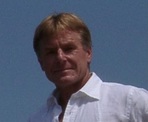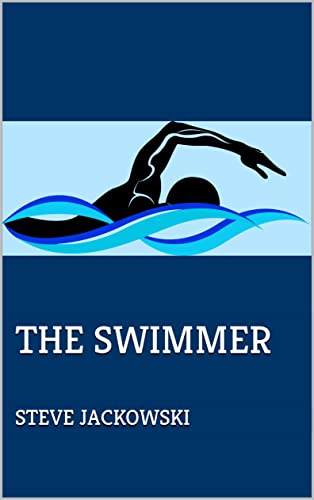
When I received my jury notice, I figured that this time would be like the dozens of others - I call in each day and am told to call the next. At the end of the week, the recording thanks me for my service and says that I have fulfilled my jury duty obligation and would not be called for the next two years.
But this time was different. It started out the same; I called in to see if I had to report the first day and as had happened literally dozens of time before, I was told to call back the next day. Same thing the following day. I was sure that this was going to be a repeat. What was the likelihood that I'd be called in the middle of the week for a DUI trial? Almost everyone I knew who was actually called to appear was impaneled on a 3-day DUI trial. Only a couple of people had to serve longer - a week or so on civil suits.
On my next call, I was told to appear on Thursday. The fact that I was supposed to show up at 2 pm near the end of the week should have been my first clue that more was going on here.
After driving around the courthouse for 30 minutes in search of parking, I finally found a spot on Water Street. I walked into the Jury Assembly Room, dripping wet because of the raging storm, with barely 10 minutes to spare. I filled out the basic questionnaire and took a seat among over 100 people. A few minutes later, a friendly Sheriff's Deputy led us through security and into the courtroom where we struggled to find seats. Judge Timothy Volkmann greeted us warmly and encouraged the stragglers (me among them) to sit in the jury box. He jokingly assured us that sitting in the jury box at this point was nothing to be worried about. We looked nervously at each other.
Over the course of the next twenty to thirty minutes, Judge Volkmann explained our responsibilities as jurors and how the process worked. He also made it very clear that no one was getting out of jury duty without a very good reason. Then he dropped the bombshell. This was a five week trial and the defendant was charged with raping his 7 year-old daughter. There were countless audible gasps in the courtroom.
I'm sure this is disappointing, but I'm not going to go into the details of the case in this blog. Instead, I want to describe some surprises in the process and how this trial impacted me and the other jurors. First the surprises:
1) We were given a very long questionnaire to be completed outside the courtroom and returned to the bailiff before leaving the courthouse. There were a few yes/no questions, but the majority were questions that really got into who you were and what you thought about the justice system, the police, and the idea of innocence until proven guilty. There were lots of case-specific questions about sexual abuse, your ability to separate lies from truth, and questions about children testifying, children lying - it was all surprising. It took me nearly two hours to complete the questionnaire. Court and jury selection would reconvene first thing Monday morning.
2) On Monday morning, the court requested private interviews with seven of us, me included. Based on my questionnaire responses, both the prosecutor and defense attorneys asked me numerous questions about my previous experience with people who had been sexually abused and about my ability to render a fair decision in spite of this experience. While they seemed to find my answers satisfactory, I noticed that 3 of the seven were excused. Not long after entering the court as a group, a few dozen potential jurors were excused, some for hardship (a separate form they'd filled out).
3) Jury selection progressed as you might expect. They put 12 people in the jury box. The judge asked several questions, then the defense and prosecuting attorneys asked questions. Surprisingly, it wasn't adversarial at this point. Both attorneys seemed to be looking for impartial jurors, not jurors who would favor their side. Countless jurors were excused. At one point, it appeared there were 11 jurors who seemed acceptable to both sides. They needed one more juror and 4 alternates. They brought me up. I was selected as the third of the 4 alternates - juror number 15. Everyone else was excused and thanked for their service.
4) During the course of the trial, winter storms closed roads and caused power outages. At times jurors couldn't get to court on time. The judge would either excuse us for the day or delay the start until the jurors could get there.
5) During the trial, the prosecutor and the defense attorney worked closely together. Certainly, they had disagreements which were settled in sidebars or through objections, but overall, they spent a lot of time conferring on how to best present evidence.
6) We've all seen the movies where there is direct examination of a witness followed by cross-examination, followed by a possible redirect. What I didn't know is that the redirect and recross become a re-redirect and re-recross and that there's no limit to the back and forth. And the biggest surprise: JURORS GET TO ASK QUESTIONS.
According to Judge Volkmann, in California and many other states, judges have the option to give an instruction permitting jurors to ask questions. A juror notes the question on a piece of paper, the bailiff delivers it to the clerk who enters it into the record and hands it to the judge. If he thinks it might have merit, he gives it to the attorneys. They determine if it has merit and if so, decide who will ask it, sometimes getting clarification from the judge on evidence and legality before posing the question to the witness. We had over 80 juror questions during this trial.
7) The police, forensic examiners, and expert witnesses were excellent. It was clear that these people knew what they were doing and had expertise that you wouldn't think possible, even after watching countless courtroom dramas. Personally, I couldn't imagine doing their jobs.
So here I was. After decades of receiving jury duty notices, and only having to show up once, this time I was selected for a criminal trial forecast to last 5 weeks, but which actually took almost 8 weeks. Since I'm now retired, I thought the timing was perfect. For years, I had managed to escape jury duty's impact on my startups so now it was time to pay up. For the first time in my life, I had the time and flexibility to try to contribute to this most fundamental of our democratic processes.
But, I had no idea how much it would impact my life.
It was a complicated trial. Witnesses lied. And they lied about things that didn't seem to matter to the case. They contradicted each other. They changed their stories. They recanted previous testimonies with investigators and at the preliminary hearing. The process was long. The crime was described in excruciating detail complete with forensic evidence, photographs, and hours and hours of victim and family interviews. The defendant interrogation was grueling. Most of us were overwhelmed seeing a real life interrogation that went on for 10 hours or more. And as the trial progressed, it was clear that innocence, guilty, or not guilty (can't be proven beyond a reasonable doubt) was not clear. There would be no easy decision here.
But the worst was that none of us could talk about all we were seeing, hearing, and feeling. As we exited the courtroom for breaks, it was clear that most everyone was deeply shaken by what we had seen and heard. We couldn't talk to family, friends, counselors - as you might expect - but we couldn't talk to each other either. It would have been helpful to be able to discuss the contradictions that seem to arise throughout the trial as well as the truly disturbing claims.
I had nightmares. I got depressed and angry - short tempered - not like me at all. I couldn't stop thinking about the trial - about the process, the victim, the defendant, the attorneys, the conflicting evidence. Unanswered questions haunted me and there was no one I could talk to about them. During evenings and weekends when we had time for social events, my mind was on the case. I couldn't stop thinking about it.
Now, after the end of the trial, other jurors tell me they experienced the same or worse. Like mine, their spouses tried to be patient and understanding, but when you're in a relationship where you share your lives, and talk about what you do each day, going 8 weeks without being able to discuss what occupies your every waking hour and disrupts even your sleeping hours is a strain on any relationship.
Worse, for me as an alternate juror, while I got to ask questions and participate in the whole trial just like any other juror, I was excluded from deliberations unless someone dropped out. We did lose one juror during the trial, but the likelihood of losing another during deliberations was virtually non-existent. All the analysis, all the questions - I wouldn't be able to ask them. I wouldn't be able to give my input in the deliberations. And now that I know how it turned out. I get to feel some additional guilt and lose more sleep over the fact that I think I might have helped bring about a different outcome: on the major counts, the jury was hung, 11 to 1.
Eleven jurors thought the defendant was not guilty. If you think about it, that's a long way to come from the initial gasps, especially after 6 weeks of intense prosecution evidence including those police reports and interviews, forensic interviews, and testimony by police and experts.
I admit that I wasn't sure about my conclusions until I finally laid out the entire thing for Karen after the decision came in and I was released from the confidentiality instruction. But over those hours of explaining every detail to her - my first chance to talk about all the evidence and associated contradictions - it was clear to me that there were just too many holes in the prosecution's case. Not only was there reasonable doubt, I was convinced that the defendant was innocent - falsely accused of one of the most horrendous crimes.
And what about that one hold-out juror? According to the others, that juror admitted there was reasonable doubt (the requirement for a not-guilty verdict as dictated by the judge), but just wouldn't allow a not-guilty verdict. It must be nice to not have any doubt.
What happens now? There will likely be another trial. The defendant, who has spent over 3 years in jail and who has had his life ruined, will likely face the whole process again. There's a major concern about the charges on which he was found not guilty. These provided much doubt about the main charges. They likely won't be admissible in a future trial.
But I'm glad it's over. The other jurors are glad it's over. None are happy. All have been disturbed by this particular trial. We all hope to find some way to move on.
For me, I'm still not sleeping well. I hope to be meeting with both attorneys shortly to talk about the trial. I will be spending time with other jurors, trying to make sense of the whole thing and trying to get our lives back on track. Then maybe I'll give you the details and the countless questions. In the meantime, I'll be working on a novel about the case, hoping the writing will release me from the mental squirrel-caging I can't seem to control.
Update: It took quite a while, but I finally finished that novel. I called it The 15th Juror. You can find it on Amazon in paperback and ebook formats. Let me know what you think. And, If you get a chance, , please check out my other novels.


 RSS Feed
RSS Feed